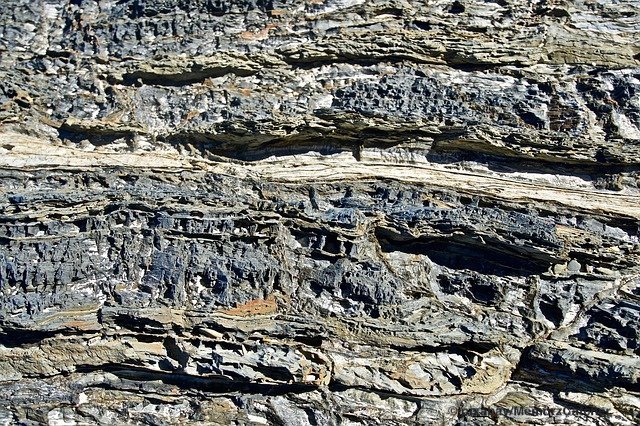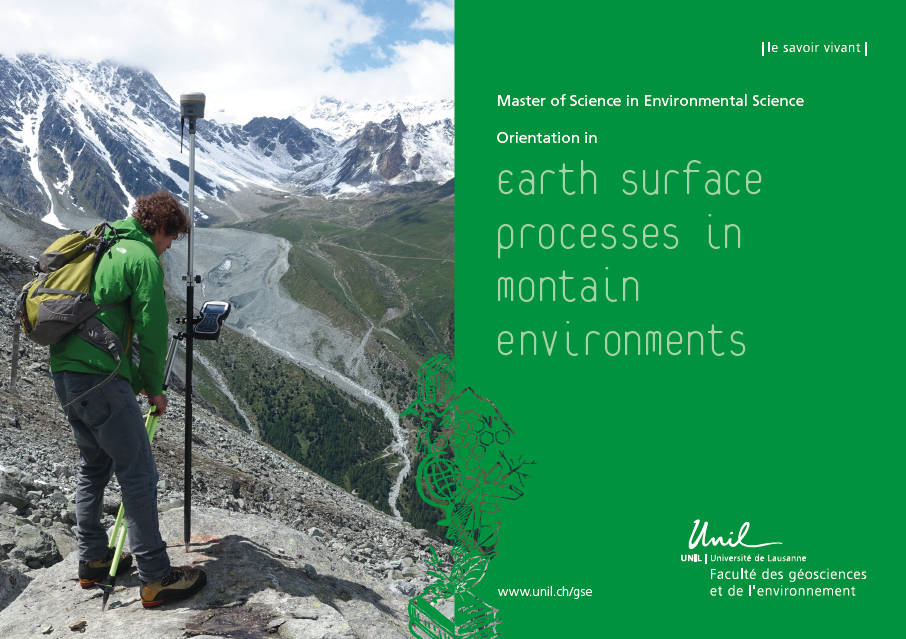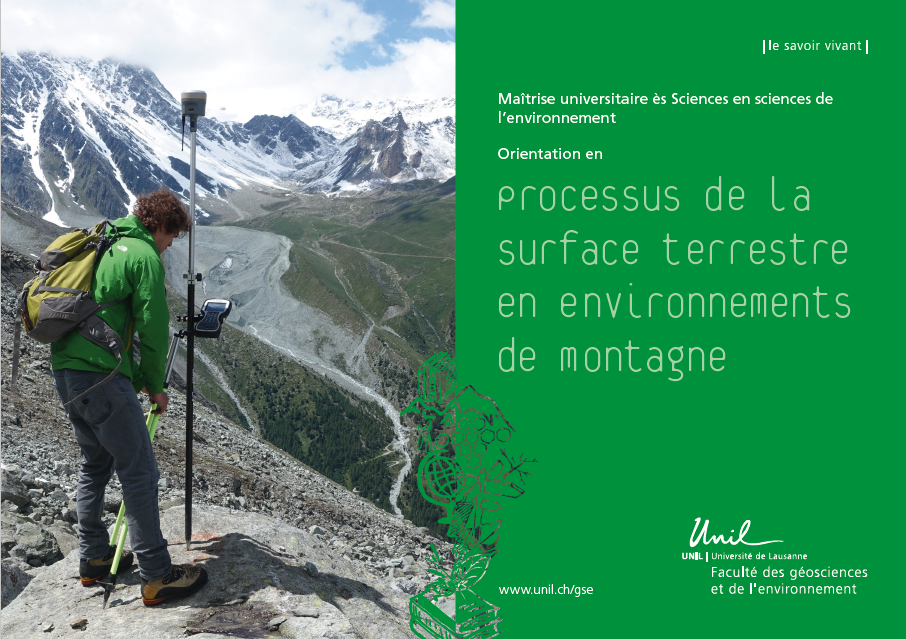Earth surface processes in mountain environments
| New in 2021 => new orientation
| OBJECTIVES
| TARGET PUBLIC
| CONTENT AND APPROACH
| COURSE STRUCTURE
| TEACHING LANGUAGE
| Coordinator for the orientation

New in 2021 => new orientation
Subject to the approval of the regulations and the study plan by the competent authorities
OBJECTIVES
The orientation « Earth Surface Processes in mountain environments » aims to train students in the analysis of active earth surface processes in mountain environments. Whilst the content of the orientation applies the world-over, the training is provided using the Swiss Alpine environment as a natural laboratory.
The focus is unique in the Swiss University landscape because of its cross-cutting focus on a suite of Earth surface processes and the application of advanced data collection, handling and analysis methods to understand them. The syllabus situates its focus within the context of wider drivers of change in Alpine landscapes, including the effects of rapid climate warming and the direct impacts of humans; and uses examples of actual environmental management challenges and solutions that relate to Earth surface processes in mountain environments.
The training involves lectures, practical classes and fieldwork.
TARGET PUBLIC
The orientation « Earth surface processes » is intended for students in Environmental Science who wish to specialise in actual environmental management challenges and solutions that relate to Earth surface processes in mountain environments
The specialisation is open primarily to those with a Bachelor of Science (BSc) in Environmental Science or Geology. Other candidates with a Bachelor’s degree, such as in other quantitative programmes in the Natural Sciences or Engineering, may be eligible after consideration of their application.
CONTENT AND APPROACH
The curriculum followed to complete the Master of Science (MSc) in Environmental Science is based upon a first year of compulsory courses (two modules common to all orientations ; one module related to the chosen orientation) ; and a second year containing two modules (one involving freechoice courses, and the other related to the Master’s thesis).
COURSE STRUCTURE
Modules common to all orientations (30 ECTS total) : Foundations in Environmental Science ; Environmental data and systems analysis.
Orientation «Earth surface in mountain environments (30 ECTS total) : Courses addressing alpine environments, mountain ecosystems, ecology, evolution, field and laboratory methods, excursions
Free-choice courses (20 ECTS) : Courses intended to enhance the orientation, chosen by the student and approved by the director of the programme.
Master’s thesis (40 ECTS)
TEACHING LANGUAGE
All compulsory courses are given in English. Students have to choose optional courses, and these may be given in English or French according to their choice. The recommended level of English is C1.
All assessed work, including exams, reports and the Master’s thesis, may be written in English or French.
Coordinator for the orientation
Dr. Stuart Lane, stuart.lane@unil.ch


